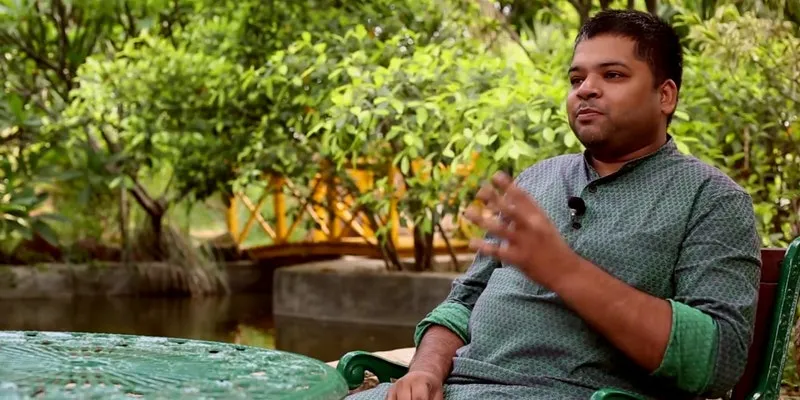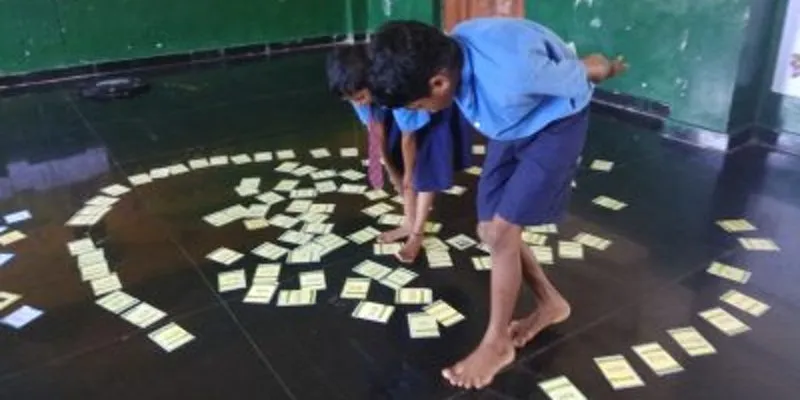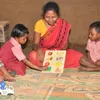This engineer's NGO is kindling hope and bringing quality education to children in Naxal-affected areas in Chhattisgarh
Founded in 2015 by Ashish Shrivastava, an engineer, Shiksharth has impacted around 25,000 children till date with unique teaching methods.
The State of Chhattisgarh is infamous for the Naxal activities in the area. Due to this, development has completely taken a backseat in areas such as Sukma and Bijapur in the State.
For the past few years, in Sukma district, which has been caught in the middle of Maoist violence, nearly 40,000 kids have dropped out of school.
Living in abject poverty and under the constant fear of losing their lives, these kids lost access to basic education.
However, things aren’t the same anymore, thanks to Ashish Shrivastava. An engineer by profession, he left his cushy corporate job in Delhi, and started travelling across India. During his travel, his visit to the Dantewada region shook him to the core. He noticed that due to Naxal violence, the education of the kids suffered drastically in the region.

Ashish Shrivastava (Image: YouTube)
Hence, in 2015, Ashish started Shiksharth, an NGO, which is now working with children in conflict-affected areas in Chhattisgarh. Thanks to Ashish’s NGO, today, out of the 40,000 kids who dropped out of school, 25,000 of them are receiving proper education.
The NGO provides education through existing government schools, but has redesigned their curriculum and improved the method of teaching. At present, Shiksharth is directly involved with over 3,000 children. Further, it has reached out to around 25,000 children indirectly in Sukma and Bijapur with the help of regional bureaucrats.
Speaking to Medium, Ashish said,
“We started with one residential school with 500 students, and then moved on to five schools with 2,500 students. Now, we have impacted around 25,000 children.”

(Image: India Fellow)
The NGO, which generated funds through crowdfunding, was also able to impact around 30,000 children indirectly.
To strengthen the education facility in the region, the organisation has helped reopen 85 primary schools, and is hoping to make it 100 by the end of 2019.
The NGO also provides fellowships to young changemakers from across India to help these children. As part of this, select people are made to devote a year to teach the kids in Sukma and Bijapur. At present, there are 15 dedicated volunteers involved in the 2019 fellowship programme.
However, things weren’t easy, as Ashish had to face his fair share of obstructions. Speaking about the challenges to Efforts For Good, he said,
“I had endless roadblocks to convince me to go back to the usual life and leave these children the way they are. The villagers were quite reluctant to interact with city folks. In addition, the language barrier made communication almost impossible. Still, I persisted. I desperately wanted to save those kids from drowning into an abyss of uncertainty. I wanted to educate and mentor them into ideal future citizens. So, I stayed back.”
With no internet and basic amenities to teach kids, Ashish had to take the old-school route to teach them.
“In our childhood, we learnt A for Aeroplane, B for Ball, etc. Kids here have not even seen a highway in their life, let alone an airplane. So, if their textbooks teach A for Aeroplane, how will they relate? We have changed that to A for Arrow, a piece of common equipment in their community,” he said.
To make subjects more interesting, he has made contextual alterations, where instead of writing an essay on our history or monuments, kids are asked to write about local festivals and natural wonders.
Further, the children are taught basic addition and subtraction with local Mahua fruits, and senior students are taught the concept of sales and profits using the same fruit.
For Ashish, development means education and food, and not concrete roads or skyscrapers.
Do you have an interesting story to share? Please write to us at [email protected].To stay updated with more positive news, please connect with us on Facebook and Twitter.









